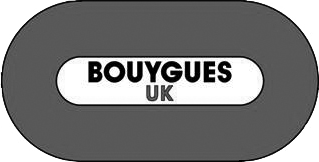June 28, 2019 3:35 pm
Understanding the key differences between helical piles and concrete is vital before you can begin to cast judgement on which is better. Helical piles consist of a steel shaft which has a plate welded to the exterior surface; this plate assists the screwing in motion of the device as it is inserted into the earth and offers strong resistance against any movement to the shaft. Concrete works by spreading across a surface and offering resistance in that way. Where a helical pile literally anchors a structure firmly into the ground, concrete merely glues it into place. This of course means that the building or structure being supported by concrete is more at risk of structural damage because concrete is vulnerable...
June 21, 2019 4:32 pm
Unless you are in the industry or have had reason to research, it’s possible that you have many questions about helical piles and what they are. Here are some in-depth questions and answers to cover the most important facts. What is a helical pile? In short, it’s a device for building foundations on any type of ground. The device…” helical pile” or screw pile, is a metal shaft with special plates attached to it’s length at certain points. How do they work? A screw pile is very similar to an ordinary screw. Compare a screw to a nail and think about how a nail must be hit to install it whereas a screw is smoothly inserted. That’s what screw piles...
June 14, 2019 12:27 pm
Sometimes known as manufactured homes, what older generations in the UK will call Prefabricated homes are on the rise in the UK. The old prefabs of post war Britain are mostly long gone, though a few remain as monuments to a simpler time. Built as temporary answers to a housing problem after the war when so many properties had been destroyed, the old prefabs provided much-loved homes for many families and some stayed in theirs for the rest of their life. Now as some of the UK’s larger cities struggle to provide enough affordable homes for people with low-incomes and the retired, it seems that prefabs have once again come to the fore. Modular developments in Manchester and in Liverpool...
June 7, 2019 2:25 pm
Soil varies enormously depending on geographical position. Country by country and county by county, soil types are different and even in areas where the soil is quite uniform there are always anomalies…spots where the ground is particularly chalky or unstable. All buildings need a strong foundation or the structure simply won’t last. Unstable ground makes for unstable buildings. The strength and stability of any soil will depend on its properties. Clay-based soil is often very stable when compared to sandy soils but the best is soil with a mixture…gravelly type soils in other words. They have the best stability because of the relative firmness when compared to dry sandy soil which will always shift or moist soil which is prone...




















